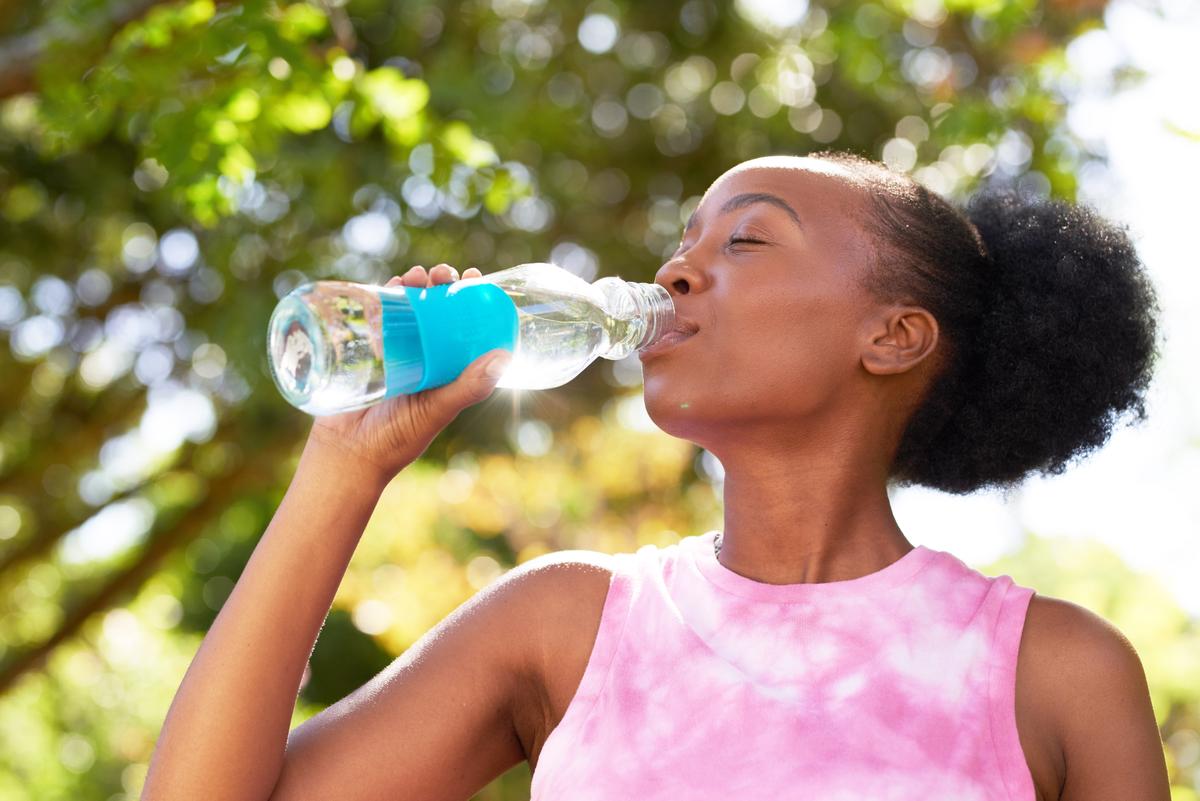When you think of dehydration, feeling thirsty might be the first thing that comes to mind. But dehydration – occurring when your body loses more fluids than it takes in – can lead to far more serious health issues than just a dry mouth.
Understanding the potential complications of dehydration will help you see why you need to drink enough water.
8 Potential Complications of Dehydration
While mild dehydration causes symptoms like thirst, fatigue, and headache, severe dehydration can lead to confusion, rapid heartbeat, fainting, and even shock, requiring immediate medical attention. Even chronic mild-to-moderate dehydration can contribute to significant health problems over time.
Let’s now see some more serious effects of dehydration:
- Kidney Stones: One of the well-known complications of dehydration is the formation of kidney stones. When you don’t drink enough water, your urine becomes more concentrated. This allows minerals and salts to crystallize, forming painful stones in your kidneys that may require medical intervention. Concerned about kidney health? Regular checks, like a kidney function test, can provide important insights.
- Urinary Tract Infections (UTIs): Proper hydration helps flush bacteria out of your urinary tract. Insufficient fluid intake increases the risk of UTIs, as bacteria can multiply more easily, leading to painful infections. Dehydration and UTIs are often linked. Experiencing UTI symptoms? Convenient at-home tests, like Healthtracka’s Peach kit, can help identify infection.
- Heat-Related Illnesses (Heat Exhaustion & Heatstroke): Water is essential for regulating body temperature through sweating. Dehydration impairs this ability, significantly increasing your risk of heat exhaustion (dizziness, heavy sweating, nausea) and potentially life-threatening heatstroke (high body temperature, confusion, loss of consciousness), especially in hot climates like Nigeria’s.
- Constipation: Proper hydration keeps the digestive system moving smoothly. When dehydrated, your body conserves water, often by drawing more from the colon. This results in harder, drier stools that are difficult to pass, leading to constipation which is an uncomfortable effect of dehydration.
- Low Blood Pressure (Hypotension): Your blood volume decreases when you’re dehydrated. This can lead to a drop in blood pressure, causing symptoms like dizziness, lightheadedness, fainting, and overall weakness.
- Impaired Cognitive Function & Mood: Even mild dehydration can impact brain function. Difficulty concentrating, foggy thinking, impaired short-term memory, mood swings, and increased irritability are common cognitive complications of dehydration.
- Skin Problems: Hydration is key for healthy skin. The saying “drink water for clear skin” has merit. Insufficient hydration leads to dry, flaky, less elastic skin and can worsen conditions like eczema and psoriasis.
- Complications During Pregnancy: Pregnant women have increased fluid needs and are more susceptible to dehydration. This can lead to serious issues, including low amniotic fluid levels, urinary tract infections, and potentially preterm labor. Staying well-hydrated is crucial throughout pregnancy.
Staying Hydrated: How Much Water Do You Need?
While general guidelines suggest around 3.7 liters (approx. 15 glasses) for men and 2.7 liters (approx. 11 glasses) for women daily (including water from food), individual needs vary. Consider these factors:
- Body Weight: A common guideline is half to one ounce of water per pound of body weight (e.g., a 150lb / ~68kg person might aim for 75-150oz, or roughly 9-18 glasses, adjusting based on other factors).
- Activity Level: Exercise increases fluid loss through sweat, requiring higher intake.
- Climate: Hot and humid weather, like Nigeria experiences, increases sweat loss and hydration needs significantly.
- Overall Health: Certain health conditions or medications may affect fluid requirements.
- Pregnancy/Breastfeeding: Fluid needs are higher during these times.
7 Practical Tips for Staying Hydrated
Recognizing the dangers of dehydration motivates prevention. Here’s how:
- Carry a Water Bottle: Keep water accessible throughout the day.
- Set Reminders: Use alarms or apps if you tend to forget to drink.
- Drink Before Thirst: Thirst indicates you’re already starting to dehydrate. Sip water regularly.
- Monitor Urine Color: Pale yellow or colorless urine generally indicates good hydration; dark yellow suggests you need more fluids.
- Eat Water-Rich Foods: Include fruits and vegetables like watermelon, cucumber, oranges, and tomatoes in your diet.
- Hydrate During Exercise: Drink water before, during, and after physical activity.
- Increase Intake in Hot Weather: Be extra vigilant during hot periods or Harmattan season.
Conclusion
Water truly is essential for life. Drink up for your health.
By making a conscious effort to drink enough water daily, tailored to your individual needs and environment, you can prevent these issues and support your overall health and well-being.




